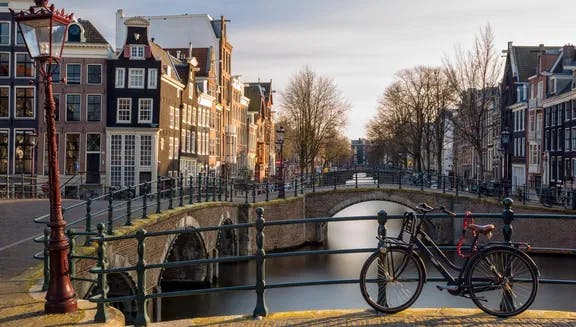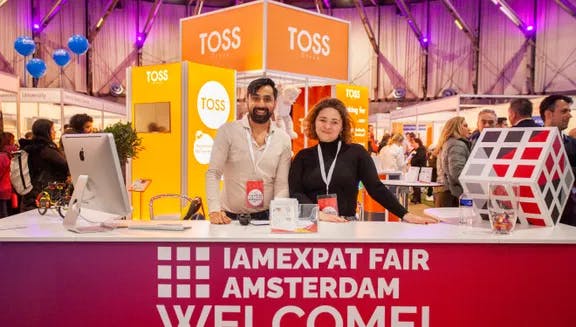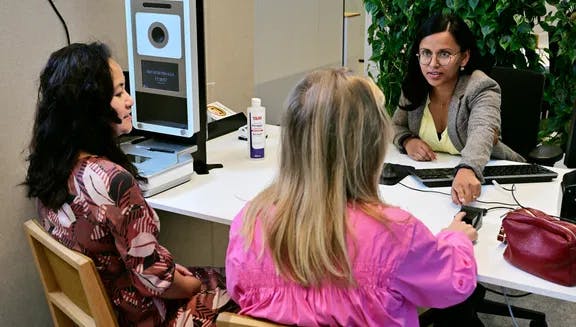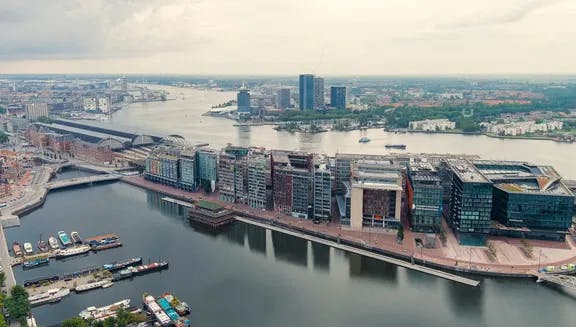
What’s changing in the Netherlands in 2025
Zero-emission zone in Amsterdam
On 1 January 2025, the City of Amsterdam is introducing an emission-free zone. The highest polluting vans and lorries will no longer be allowed to enter the area within the S100 circular road. A low-emission zone is already in effect within the A10 ring road. The City plans to expand the zero-emission zone to that area by 2028. There are support measures for businesses in place to help them with the transition, including logistics advisors to help businesses switch to zero-emission vehicles or apply for an exemption, a dedicated phone line, exemptions for some businesses, and additional financial support: Amsterdam-based SMEs and non-profit organisations can apply for a subsidy of €3,000. This comes on top of the car scrappage scheme and various national subsidy schemes that are already in place.
Lower energy tax on natural gas
The energy tax on natural gas will decrease. The tax rate on the first 170,000 m3 of natural gas used will be reduced by €0.028.
Increased support for families in 2025
Starting in 2025, parents will receive higher benefits to help with child-related costs. Childcare allowance, child benefit, and child budget (pages in Dutch) will each increase. Families with incomes between €29,400 and €159,200 will see higher childcare reimbursement rates, up to 96% of costs. Maximum hourly childcare rates will rise, and the child budget will increase by up to €75 per child. Overview of changes for families in 2025 (in Dutch).
Income tax changes
In 2025, the way income is taxed will change. Currently, the income in ‘box 1’ of the tax return is taxed in two brackets; this will change to three brackets. The new first bracket is for income of up to €38,441, which will be taxed at 35.82% – about a 1% lower rate than in 2024. The new second bracket for income between €38,441 and €76,817 has a 37.48% tax rate, about 0.5% more than in 2024. Any income above €76,817 is taxed at 49.5%, the same as in 2024. Those with lower incomes will benefit from the lower first bracket. Those with higher incomes will not see as much difference in their tax bill because of the higher rate in the new second bracket. Calculate your income tax with this tool by the KVK.
Salary thresholds for highly skilled migrants
The Dutch Immigration and Naturalisation service (IND) adjusts its salary requirements for applications for residency as a highly skilled migrant in the Netherlands twice annually. From January 2025, the following new salary thresholds apply:
- Highly skilled migrants over 30 years of age or key personnel Intra-Corporate Transferee: €5,688
- Highly skilled migrants younger than 30 years or key personnel Intra-Corporate Transferee: €4,171
- Highly skilled migrants – reduced salary criterion: € 2,989
- European Blue Card holders: €5,688
- European Blue Card holders who graduated in higher education no more than three years prior to their application: €4,551
These amounts apply to gross monthly salary excluding the 8% holiday allowance.
Minimum wage increases
On 1 January 2025, the legal hourly minimum wage for full-time workers aged 21 and over will increase from €13.68 to €14.06. AOW and WW benefits will increase by the same percentage. See the full table of minimum wage rates (in Dutch). This rise follows an earlier change to how the minimum wage is calculated, which came into effect on 1 January 2024. Since that date, the minimum wage is being set at an hourly rate instead of monthly, meaning the rate is the same for everyone.
Stricter rules for the self-employed
From 2025, the Dutch Tax Authority will enforce the so-called Wet DBA (in Dutch), meaning they can impose corrections, surcharges and fines on companies using false self-employed workers (zzp’ers). Proper documentation such as having multiple clients and being responsible for their own admin, is essential to prove the arrangement's legitimacy.
New subsidies for improving accessibility in Amsterdam
The City of Amsterdam is introducing a new subsidy scheme to improve accessibility in the city. From 1 January 2025, Amsterdam-based organisations can apply for subsidies of up to €25,000 to make venues, events, websites or apps for accessible. This can include renovations to introduce ramps or wheelchair-accessible toilets; improving digital accessibility with text-to-speech features or magnification; or training volunteers. The scheme has a total of €600,000 available for 2025 and 2026. See all subsidies (in Dutch).
Changes to the basic health insurance package
Starting 1 January 2025, the basic health insurance package will have a few changes (in Dutch) including coverage for exercise therapy for COPD and increased reimbursement for elderly rehabilitation. The deductible remains at €385, and the maximum personal contribution for medications stays at €250.
Maximum rent increase
Starting 1 January 2025, rents for private sector homes and houseboat moorings can rise by up to 4.1% (in Dutch). Mid-range rental homes may increase by up to 7.7%, but cannot exceed the maximum price limit based on the property’s points system (in Dutch).
Find out more
You can find more detailed information on the changes that are relevant for businesses on business.gov.nl and the Dutch Government website (in Dutch) and stay up to date with news for the City of Amsterdam and Weesp. And if you haven’t already, don’t forget to sign up to the IN Amsterdam newsletters for regular updates on news and events for the international community in the Amsterdam Area.
Related articles

Meet IN Amsterdam’s new director: Yulia Hess

The role of international talent in tackling healthcare shortages in the Netherlands

New insights into talent attraction and retention

Reductions to Dutch 30% tax benefit for foreign workers under review by Senate

Changes in rules and regulations in the Netherlands for 2024

Easing into life in the Netherlands: the IamExpat Fair

RNI Registrations available again at IN Amsterdam

Announcing IN Amsterdam’s new online tool for appointments

What’s changing in the Netherlands in summer 2024
